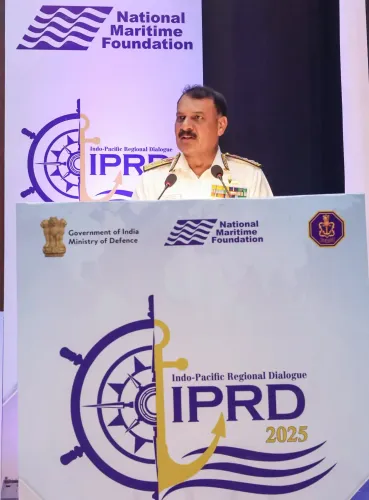Is Hand Hygiene a Luxury or the Foundation of Safe Healthcare?

Synopsis
Key Takeaways
- Hand hygiene is essential for safe healthcare.
- Clean hands prevent infections in healthcare settings.
- WHO provides guidelines to enhance infection control.
- Antimicrobial resistance can be mitigated through proper hygiene.
- The theme emphasizes that gloves alone are not enough.
New Delhi, May 4 (NationPress) On World Hand Hygiene Day, which is celebrated each year on May 5, Saima Wazed, the Regional Director for the World Health Organisation (WHO) South-East Asia, stressed that hand hygiene is not a luxury but an essential component of safe healthcare.
This significant observance, initiated with WHO's Global Patient Safety Challenge in 2005, aims to promote hand hygiene practices, especially in healthcare environments, to mitigate infections linked to medical care.
“Hand hygiene is pivotal in safeguarding the health of workers, patients, and their families during every healthcare interaction,” Wazed stated.
Wazed indicated that it directly aids in achieving universal health coverage and bolsters the global water, sanitation, and hygiene (WASH) agenda.
“Moreover, it is a critical strategy in combating antimicrobial resistance, which poses a rising threat to global health,” she added.
“The infection prevention and control (IPC) measures, which encompass hand hygiene, form the bedrock of safe and efficient healthcare systems,” Wazed emphasized.
To support nations in enhancing IPC, WHO has issued evidence-based guidelines and a structured framework known as the WHO Core Components of IPC.
This framework aids healthcare systems in launching their national programs, improving infection control, and training healthcare personnel.
Additionally, WHO has formulated a Global IPC Strategy, Action Plan, and Monitoring Framework to facilitate countries in effectively applying these standards.
The theme for this year's World Hand Hygiene Day, 'It might be gloves. It's always hand hygiene,' serves as a reminder that even disposable medical gloves can become contaminated, underscoring the necessity of hand hygiene regardless of glove use.
Wazed accentuated the significance of this message, pointing out that clean hands are vital in preventing infection transmission, regardless of whether gloves are used.
The Regional Director also referenced the recent Global Report on Infection Prevention and Control, which indicates notable advancements in numerous countries within the South-East Asia region.
Most nations now possess active national IPC programs, with many supported by national guidelines adhering to WHO's core component standards.
Several countries have also allocated specific budgets for IPC programs, ensuring the ongoing success of these crucial initiatives.
Wazed called upon health professionals, healthcare managers, and everyone involved in patient care to embrace the message of World Hand Hygiene Day and advocate that clean hands save lives.









